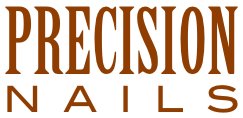Article Published in Stylist Magazine, November 2013
If you’ve never considered how your salon would function without you, it’s about time. Could it function while you take a vacation or attend a beauty show (voluntary absence), or if you were to become ill or be assigned to jury duty (involuntary absence)? As a salon owner and service provider, I’ve considered these possibilities, not just for myself, but for my employees also. While life can be unpredictable, it’s worthwhile to think through how you can protect yourself from possible threats to your business, even something as simple being absent, planned or not. Managing the risk associated with salon ownership may not be as exciting as developing a new service or creating a client loyalty program, but ultimately, it’s more strategic and advantageous.
Risk cannot be eliminated entirely, but it amazes me how salons operate as if either there wasn’t any, or it was beyond their control. How many salons fail to satisfy the most basic requirements, such as valid professional licensing? What about providing services beyond the scope of practice? Ignoring the state’s health and safety regulations? Working on clients with serious medical concerns? Falsely advertising services? Underreporting income and avoiding taxes? Inadequately compensating service providers? Both salon owners and beauty professionals have legal and financial obligations and every effort should be made to understand and comply.
Even when you’re not obligated by law, there are precautions that can be taken, the most obvious being insurance. Anything worth having is worth protecting, so you may already have multiple insurance policies. Currently, I have insurance policies for my home, health, auto, life, business liability and property, worker’s compensation . . . and even earthquakes. I could have even more (dental, vision, disability insurance, etc.), but haven’t deemed them necessary to justify the additional expense. An independent insurance professional can give you specific guidance on which policies would best protect your interests given your circumstances.
Product safety has become a bigger concern lately, as some speculate about the health risks presented by certain nail products and equipment, while others present scientific facts and offer useful suggestions (e.g. avoiding overexposure, wearing eye protection and having an adequate ventilation system). While I don’t welcome more government regulations, I would appreciate greater accessibility to regulatory information pertaining to our industry, starting with our respective state boards. Federal agencies, like the FDA (Food and Drug Administration) and OSHA (Occupational Safety and Health Administration), also have jurisdiction over our industry. For example, did you know that according to the FDA, “There are no color additives approved by FDA for permanent dyeing or tinting of eyelashes and eyebrows?” In effect, this renders these services illegal, no matter what your state board regulations might state.
Speaking of health, why not take better care of yourself? Get enough sleep, stop smoking, improve your eating habits, develop an exercise routine, work more ergonomically, take frequent breaks (including the bathroom!), know your family health history, have regular exams, ask your doctor/nurse practitioner about your concerns, etc. Your physical health may be your greatest asset, not only for your personal well-being but for the medical costs and complications you could avoid later in life.
Personal safety is something we don’t often discuss within our industry, but it’s something I take seriously. Every news report of a violent incident within a beauty salon reminds me of how vulnerable we can be. “Good customer service” shouldn’t make you a target; protecting yourself and your staff is more important than being friendly and making money.
While most salons welcome interaction with the general public by keeping their doors unlocked, I’m doing just the opposite. This may contradict everyone’s expectations of a nail salon, but that’s not my concern. After 8 years of interacting with the public, I grew tired of the disruptions (“Would the owner be interested in buying . . . ?“), the ridiculous questions (“Is this a nail salon?”) and the casual browsers (“I’ve never seen so many different polish colors. What’s a good red?”). One of the latest interactions went like this:
Lady 1: “We need two pedicures and two manicures and . . . “
Me (slowly shaking my head): “We don’t have time for those services today; our next availability would be Friday morning.”
Lady 2: “It’s now or never!”
Me: “Then it’s never.”
Did I risk offending them? Perhaps, but that’s a risk I was willing to take; their lack of planning was not my problem.
As the end of my lease approached, I considered what I liked most and least about my salon business, and what changes I could make to minimize my risk. Changing salon locations gives me the opportunity to reinforce the best, and eliminate the worst, aspects. In the new salon, we're not required to keep particular hours; we work when we have appointments scheduled. And only those who have appointment reservations are allowed to enter the salon. Signage on the door emphasizing “By Appointment Only” directs visitors to the website and provides the salon phone number, while our new brochure is displayed in the adjacent window. A magnetic door lock with remote control makes “walk-ins” impossible, allowing us to give clients our undivided attention in a more private and secure setting.
By Jaime Schrabeck, Ph.D.
Welcome to the Precision Nails Blog
As a salon owner and licensed manicurist, my perspective on the nail industry could not be more practical. While some may be offended by the opinions expressed, please understand that I want to share information and stimulate discussion. Whether you want your nails done or do nails professionally, I hope you find this blog both useful and interesting.
Jaime Schrabeck, Ph.D.
Materials on this website may not be reproduced, redistributed, transmitted, copied, cached, or otherwise used, without prior written consent of Jaime Schrabeck. To request consent, contact Jaime at consulting@precisionnails.com.
Jaime Schrabeck, Ph.D.
Sunday, December 1, 2013
Subscribe to:
Comments (Atom)




